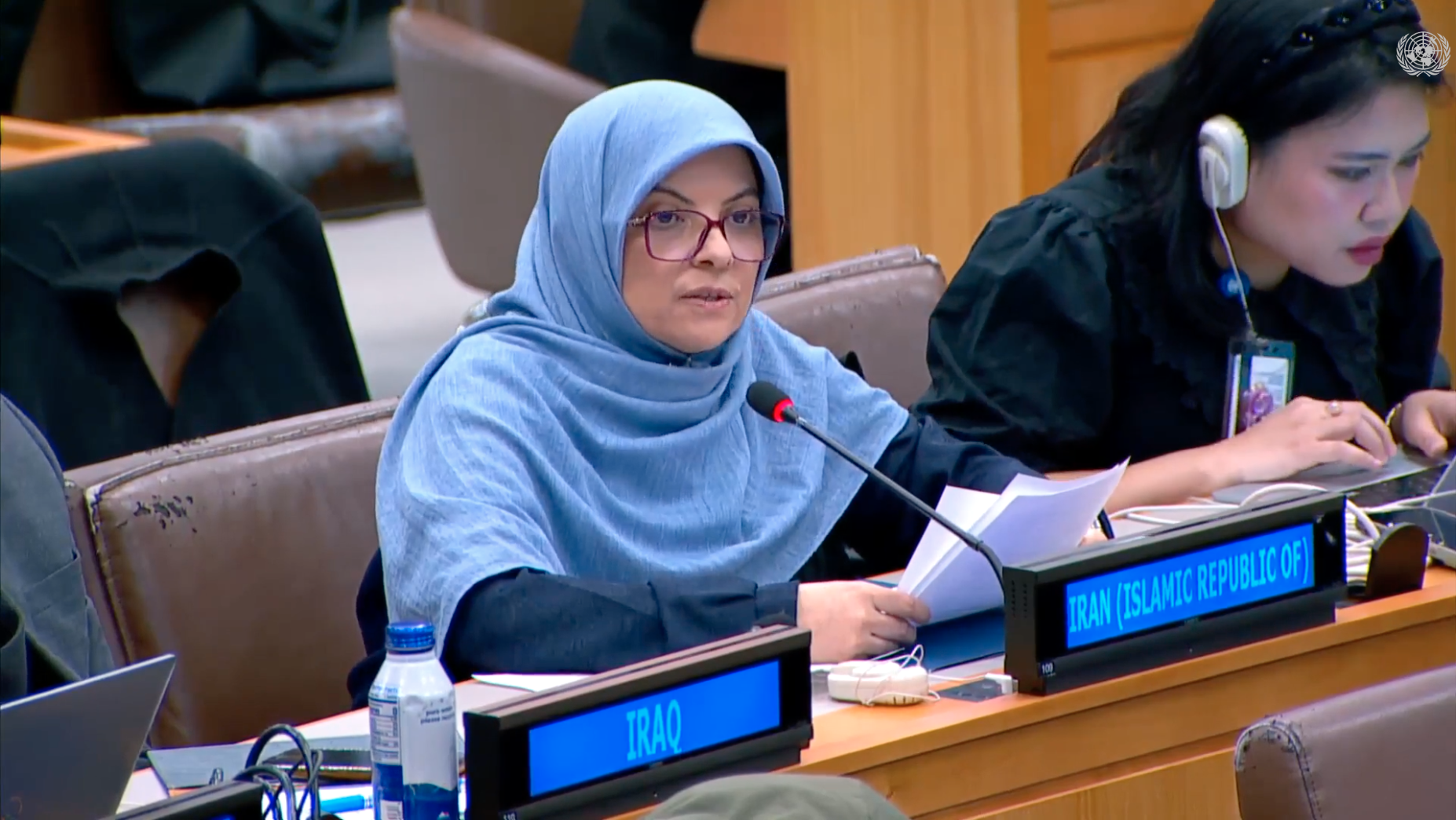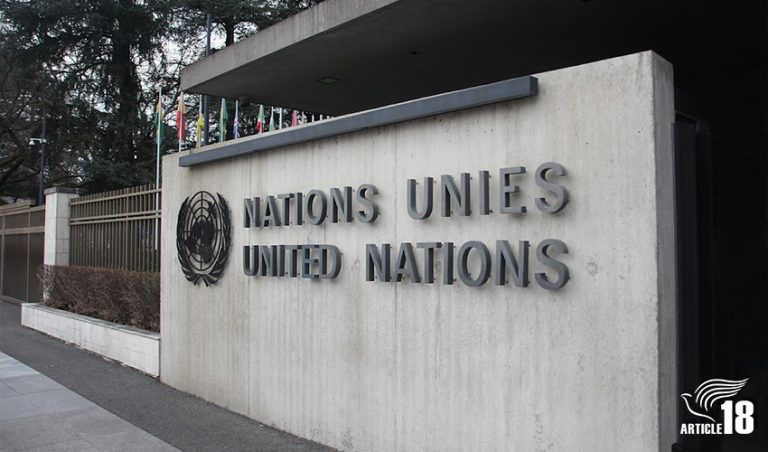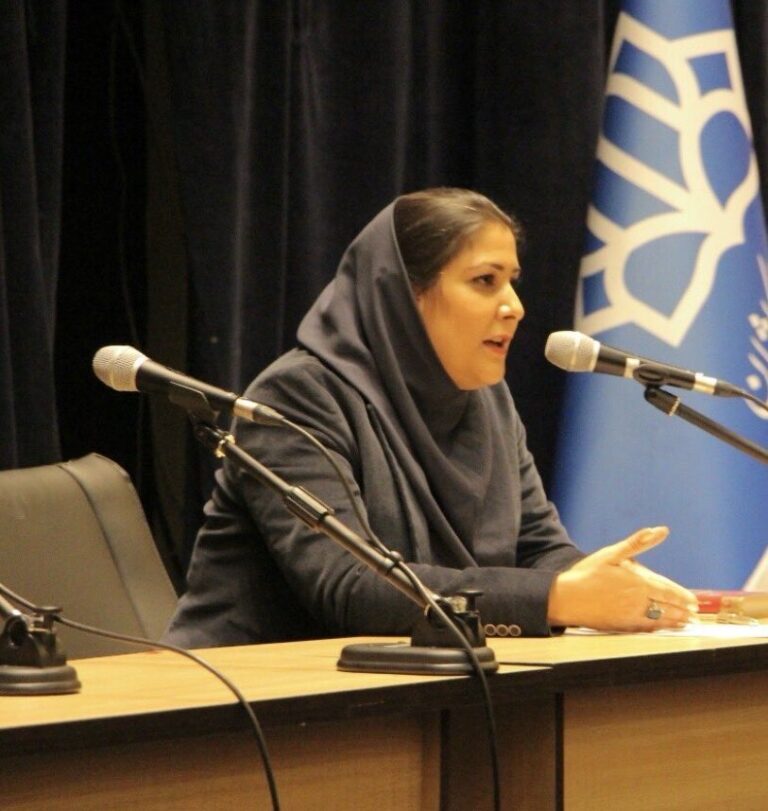The UN General Assembly’s Third Committee adopted a resolution yesterday expressing “serious concern” at “ongoing severe limitations and increasing restrictions on the right to freedom of thought, conscience, religion or belief” in Iran.
The resolution, which was passed by 77 votes to 28, with 66 abstentions, names Christians, and “particularly converts from Islam”, among the recognised and unrecognised religious minorities suffering human rights violations including “increased harassment, intimidation, persecution, arbitrary arrest, detention and incitement to hatred that leads to violence”.
It calls on Iran to “cease monitoring individuals on account of their religious identity, to release all religious practitioners imprisoned for their membership in or activities on behalf of a minority religious group … and to ensure that everyone has the right to freedom of thought, conscience and religion or belief, including the freedom to have, to change or to adopt a religion or belief of their choice, in accordance with its obligations under the International Covenant on Civil and Political Rights”.
It also calls on Iran to “eliminate, in law and in practice, all forms of discrimination on the basis of thought, conscience, religion or belief”, including the “restrictions contained” in the amended Articles 499 and 500 of the penal code, which have been used to convict several Christians since they were introduced in 2021, and which the resolution says have “significantly escalated discrimination and violence” towards members of religious minorities, as well as denial of employment and restrictions on access to education.
The resolution notes the restrictions placed “on the establishment of places of worship”, as highlighted in Article18’s Place2Worship campaign, and demands an end to “ongoing systemic impunity for those who commit crimes against persons belonging to recognised and unrecognised religious minorities”.
Who said what?

The representatives of Canada, Australia, the United States and Israel spoke out in condemnation of Iran’s restriction on freedom of religion or belief during the debate ahead of and after the vote, while the representatives of Brazil, Ghana and the UK specifically raised the plight of Baha’is. However, the Ghanaian representative explained that her country had abstained from voting on the basis of the “assurances” given by Iran of the “progress” being made with regard to human rights and “our expectation that in due time, those assurances will translate into tangible protection for all segments of the Iranian society”.
Several countries spoke in support of Iran and against “politicised” country-specific resolutions, including the representatives of North Korea, Russia, Syria, Pakistan, Venezuela, Nicaragua, China, Belarus and Cuba, as well as Iran’s own representative.
However, the Australian representative defended the resolution as being “evidence-based” and “aim[ing] to reflect the current human rights situation in Iran, without prejudice” … “by drawing heavily from independent and credible reports by the Special Rapporteur on situation of human rights in Iran, the UN Secretary General and the independent international fact-finding mission on the Islamic Republic of Iran”.
“Country-specific resolutions in this committee do not impede sovereignty,” he said. “No country is above fair scrutiny of its human rights obligations, and no country, including my own, has a perfect human rights record.
“Our commitments, as outlined in the UN Charter, include achieving international cooperation in solving international problems, including to promote and encourage respect for human rights and fundamental freedoms for all, without distinction. We can only achieve this through transparency, openness and accountability.”
He called on Iran to grant access to Iran to the Special Rapporteur on Iran and the fact-finding mission “to further support their mandates, provide transparency, and facilitate accountability on human rights concerns”.
Earlier this month, the new Special Rapporteur, Mai Sato, pledged to “examine” the impact of Iran’s restrictions on religious freedom as part of an “intersectional” approach to rights violations in the country.




0 Comments
Trackbacks/Pingbacks